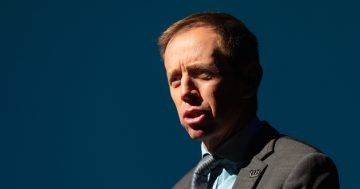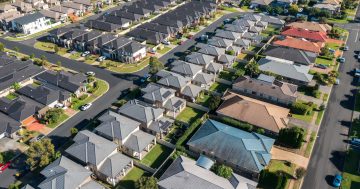Shane Wright* says a NAB survey has found a $16,000 gap between what Australians are earning and what they believe they need to deal with the costs of living.
 Australians are thousands of dollars short of what they believe they need to deal with the daily cost of living, a survey has found.
Australians are thousands of dollars short of what they believe they need to deal with the daily cost of living, a survey has found.
It also reveals many people fear they will not enjoy their parents’ standard of living.
As the new head of Treasury warned that households appear to be running down their savings, NAB’s quarterly measure of consumer behaviour has found a $16,000 difference between what Australians are getting paid and what they believe they need to live.
Consumer anxiety is at its highest level in two years, growing on the back of concerns about events within the Federal Government.
It is exacerbating deep-seated concerns about the cost of living for many people, from affording power bills to putting away money for an emergency.
NAB Chief Economist, Alan Oster said the cost of living was the single-biggest cause of anxiety for most Australians.
Survey respondents said they believed $102,000 in gross annual household income would be sufficient to cover most living costs.
The average full-time income across Australia is $86,000.
Mr Oster said the big reality gap was a huge issue for many Australians.
“It may also help explain why cost-of-living pressures still weigh most heavily on consumers and why they don’t think they’ve made strides in improving their standard of living against other generations,” he said.
The cost of living is feeding into a downbeat view of the standard of living.
NAB found most people believed their living conditions were only “moderately” better than their parents and about the same standard as their children.
Older Australians were more likely to say their standard of living was much better than their grandparents’ generation.
Cost pressures and living standards are being driven in part by concerns over low wages growth.
New Federal Treasury Head, Phil Gaetjens told a Senate Committee last month that there were continuing signs Australians were eating into their savings to maintain living standards.
He said officials continued to believe wages would lift on the back of a tight jobs market.
* Shane Wright is Economics Editor at The West Australian.
This article first appeared at thewest.com.au.











